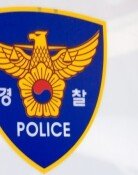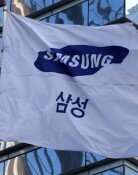Gov¡¯t irks organized interests
Gov¡¯t irks organized interests
Posted November. 23, 2000 14:31,
¡ºMany concerned voices have expressed worries concerning the apparent break-down of healthy social values caused by the mass-demonstrations which target third parties by recently formed organizations. Tens of thousands of farmers on Nov. 21 held rallies at around 100 places around the nation, some purposefully blocking traffic on an expressway, as they called for ¡®the postponement of debt repayment of the farmers.¡¯ The Federation of Korean Trade Unions and the Korean Confederation of Trade Unions have agreed to put up a ¡®consolidated front.¡¯ Since the inauguration of the current administration, never before seen organizational contentions have become common.¡»
The consolidated front has proposed a walkout for Nov. 24 set off by the opposition by the Korea Electric Power Corp. labor union to the proposed sale of the power plant.
In addition, the consolidated front is planning walkouts by labor unions in the construction field for Nov. 29, the metal work industry Nov. 30, and the business financial industry Dec. 4. Then Dec. 8, there is possibility of a comprehensive walkout by all members of the consolidated front.
On top of it all, other contentions such as the medical crisis continue to hamper society.
Such activities are more or less physical in nature, arising from group-selfishness or fights for bigger shares, and cannot find much support among the public. However, many have accused the government with a lack of principle in the structural reform and the complete loss of trust as having worsened the situation.
The biggest reason for the loss of trust in the government seems to be that this society has lost all principles. Also, the government and the ruling party are too conscious of the voters and as they are ruled by mass public opinion, principles have taken a back seat.
"From the farmers' concerted protest, which was the very foundation of the creation of the current administration, we must recognize the urgent call for the protection of their very livelihood and their protest, 'Why must we be the sufferers when the leadership does not keep to the principles?¡¯¡± Park Kwang-Taik, senior managing director of S2F Co., said.
The protest targets the chairman of Daewoo Motor Kim Woo-Choong who manipulated the finances of the company and used the company money for his own personal wealth and the fact that even now he is well off. Meanwhile, the president has taken the lead in stressing that the responsibility of the failure of the company be placed on the Daewoo workers.
Also, granted Hyundai is an important company, but does the resuscitation method through capital support and rollovers on the loans jive with other companies also desperately in need of rescue measures?
The proposal to adopt the "workers' fund savings policy" could cause more contentions, as it could be viewed as a resurrection of the old policy that had been abolished for the promotion of the capital fund market.
Such direction-less leadership by the government prompted Inha University Professor Hong Deuk-Pyo of the Department of Political Science to say, "With the disclosure of the government financial agencies' (unhealthy) involvement with businesses, how could it encourage the workers to bear the unemployment and the farmers to bear the loans even, as it requested additional 40 trillion won following 110 trillion won public fund injection to clean up the banks¡¯ acts?"
Yonsei University Professor Lee Jong-Su of the Department of Public Administration Studies said: "The impartiality revealed during the handling of the Hanvit Loan Scandal and the Chung Hyun-Joon-gate by the government was one of the causes for the people turning their backs on the government."
However, these do not excuse the organizations for activities that disrupt society. The selfish group protests such as the one against the restructuring of the public enterprises must be rejected as it becomes a tripping stone that could destroy a creative solution. Rather, many have called for greater attention to the voiceless masses and their deprivation and anger.
A labor union expert said: "It would be a great mistake for the government, failing to persuade the two labor unions, which account for only 12% of all such organizations and unions, expect the rest to blind follow its lead. The non-organized sector, the self-employed and the day-laborers, which account for about 10 million individuals are beginning to stir."
According to some, the non-organized sector is awaiting the result of the supplemental public fund injection and might be planning a protest through tax non-payment.
For the government to overcome these obstacles, as well as the industrial reorganization, expected to require many more years, many point to the importance of the government regaining the trust of the people through the "adherence of principles."
If not, even the business and profit-producing organizations that had been mostly quiet up to now might begin calling out to protect their own interests. Should such a situation arise, Korea might face a crisis that might shake the very roots of society.
Yonsei University Professor Yoo Seok-Choon of the Department of Sociology said: "Simply put, the government's attitude in various crisis management was one of appeasement to all. The first step in regaining trust would be for the government to establish a principle and keep to it."
Many voices also have called for the government to act as a neutral negotiator between contentious parties seeking to further their interests.
"If reform is unavoidable, the government needs to make every effort so that all can share and share alike the pain of the reform," Dankook University Professor Kang Myoung-Hun of the Department of Economics said. ¡°Such ¡®justice¡¯ must serve as the starting point.¡±







